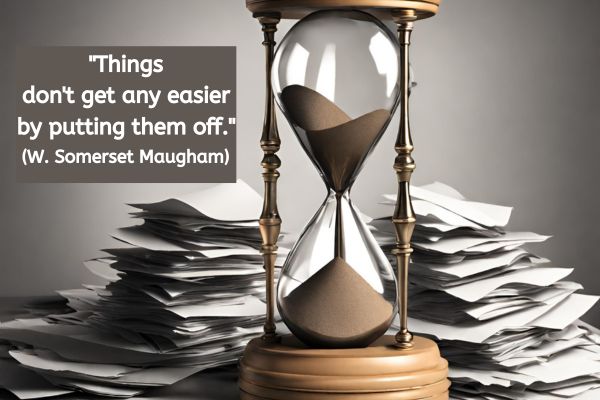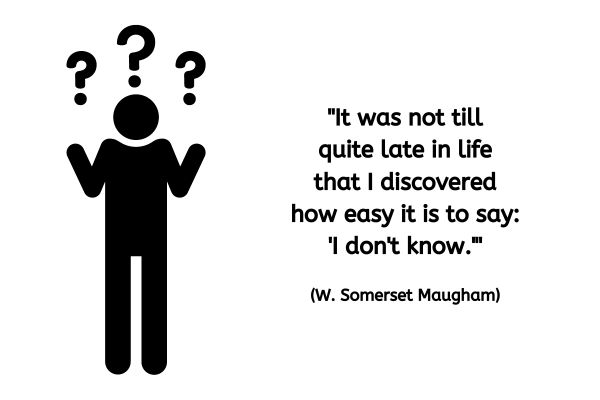A quick look at procrastination

Today’s quote is:
“Things don’t get any easier by putting them off.” (W. Somerset Maugham)
This serves as a poignant reminder of the pitfalls of procrastination that many of us grapple with in our daily lives.
Despite each of us having the same 24 hours at our disposal, productivity can vary significantly from one day to the next. This inconsistency begs the question: why do some days flow effortlessly, while others are marred by endless procrastination?
While there are exceptions to every rule, in most cases, delaying a task only serves to prolong the inevitable. However, there are instances where procrastination can be strategic, such as when a necessary preparatory step is involved. For example, enlisting the help of others or acquiring the right tools can make seemingly daunting tasks much more manageable.
But does Maugham’s quote imply that everything must be tackled immediately? Well, we get to decide what we take from the quote, so I would suggest not necessarily. Rather, one thing it could urge us to discern between procrastination and necessary preparation and take proactive steps to address tasks in a timely manner.
Have you ever completed a task and found it surprisingly easy? I recently experienced this when making a phone call on someone else’s behalf. What I anticipated to be a time-consuming process was resolved within minutes, highlighting the fallacy of our preconceived notions about task difficulty.
Reflecting on my own tendencies, I’ve identified three scenarios that often lead to procrastination. The first occurs when I prioritize other tasks over the one at hand, due to competing priorities. In such cases, delegating or seeking assistance can be invaluable. Not everything has to be done by you personally!
The second scenario arises when a task is perceived as dull, challenging, or unappealing. In these instances, reframing the task or approaching it with a fresh perspective can make a world of difference. Asking questions like, “How can I make this more enjoyable?” or “What would I do differently if this were the most important task?” can shift our mindset and spur action.
Additionally, it’s essential to question the necessity of certain tasks and consider alternative approaches. For instance, if a marketing strategy isn’t yielding results, is it truly necessary, or is there a more effective method?
Lastly, unrealistic expectations about task duration can contribute to procrastination. Accepting that tasks may take longer than anticipated and adjusting our schedules accordingly can alleviate unnecessary stress.
In conclusion, procrastination not only hinders productivity but also adds unnecessary pressure and stress to our lives. By recognizing the reality that “things don’t get any easier by putting them off” and adopting proactive strategies to address tasks head-on, we can reclaim our productivity and achieve our goals with greater ease and efficiency. What else does this quote prompt for you?
About Jen Waller

Jen Waller is on a mission to support, nurture and encourage coaching skills and talents from non-coach to coach and beyond.
As an experienced coach and trainer, Jen is happy to utilise all skills at her disposal to assist clients from getting out of their own way and making a difference in the world with their coaching. Find out more about the support Jen offers here.



